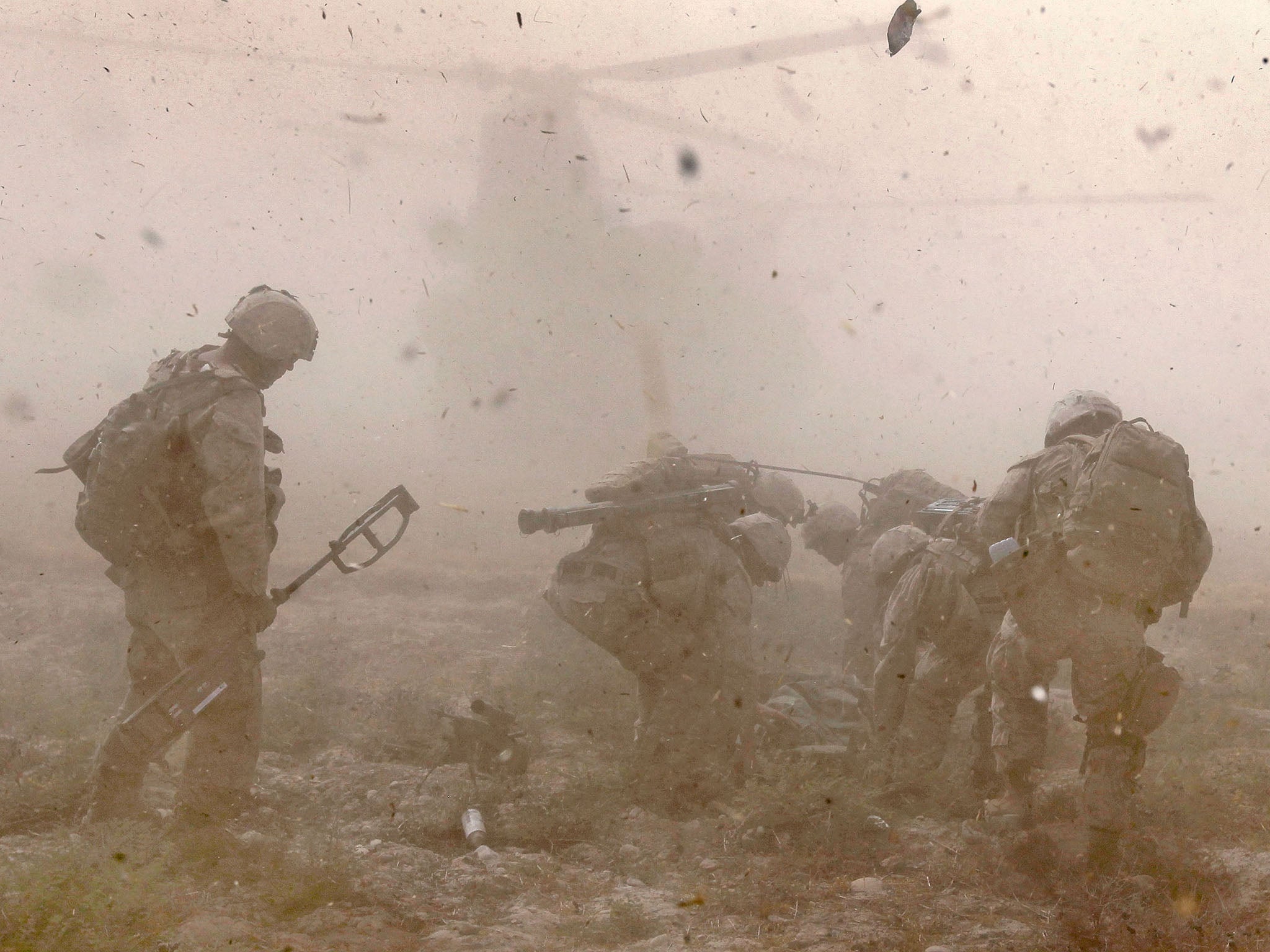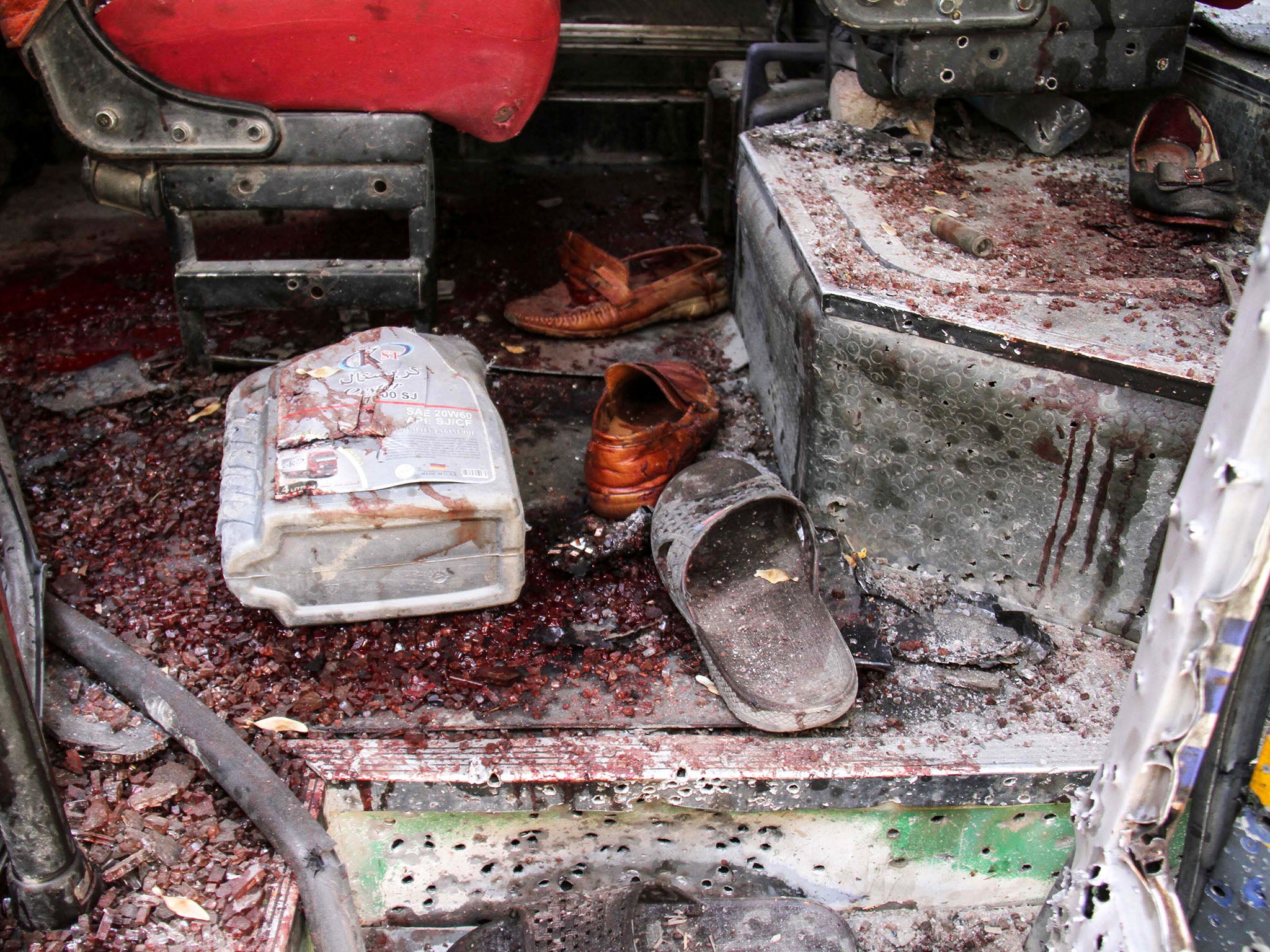Horrors from the backseat: War, healing and the smell of burning flesh
During a cab ride through Edinburgh, Amitangshu Acharya learnt about the horrors and psychological repercussions of the war in Afghanistan from his driver, Noa

I met Noa just after the midsummer sun had set behind Arthur’s Seat. He had driven the taxi beyond the pick-up point on Queen’s Drive – the blacktop that skirts the base of the extinct volcano and cuts through Holyrood Park – by a fair distance. He slammed the brakes, probably having spotted my agitated hailing in his rear-view mirror.
“Sorry about that,” he said apologetically as I jumped into the cab, “I didn’t see you.” He had an immigrant accent that was scarce in achromatic Edinburgh. “No worries, it happens,” I said, adding, in jest: “You do know that people of colour become invisible after sunset, right?”
The illiberal joke resonated with him and melted geography and time inside his small taxi in an instant. His chestnut coloured face, chiselled, and adorned with a large nose fractured near the bridge, opened up to a hearty smile. “How does one pronounce your name brother,” he asked: “Is it Amitangshu?”

He was spot on, avoiding the hard T which, in the Anglo-Saxon world, cleaves my name into two unpronounceable parts. It was easy for him, he said. He was from Fiji and had many Indian friends, listing out a few – Prakash, Sunil, Rajesh – as evidence to his claim. The journey from the Rorschach inkblot of a Pacific island nation – home to perpetual summers – to a squally and grey Edinburgh was as hard for him as it was for me, though reports of a scorched Delhi were taking the sheen off my homesickness.
Almost 12 years ago, Noa had enlisted in the British army, the Royal Regiment of Fusiliers, leaving behind sunshine, family and poverty. Like the Nepali Gurkhas, Fijians too join the British Army in the hope of a better life. With every passing year, fewer young Britishers enlist for armed service, and more from the former colonies, who have poverty, and not wealth, in common.
War was employment, with benefits which included permanent resident status in the UK. To live in the promised land, the poor have to shed blood – their own and that of others. For Noa, remnants of his Pacific life started to fade in Afghanistan, the dusty hot winds slowly scrubbing away memories of chalk white beaches of Suva. “I cannot explain to you, but I wish I had not seen what I did.”
He spent two years in Afghanistan, most of it in the battle-scarred Helmand province, latticed with opium fields and pockmarked with shelled villages where the dead stalked the living.
“In Fiji, we would take a cow, kill it and put slabs of meat on a grill. We would sit around the grill and soak in that smell. That was the smell of a good life, you know. And then, when I was in Afghanistan, I smelt burning human flesh. I just didn’t know how to react, you know? My world was upside down. It’s been 10 years, but I can’t get that smell out of my nose”.
Noa remembers dead Taliban fighters, innocent civilians, children, and his own friends, dismembered, scorched, wounded, bleeding. The deafening silence after an air strike, followed by the piercing screams of the wounded. And then the clean-up, a macabre jigsaw puzzle of putting together dismembered body parts.
“I had to put my friends into body bags, man. It’s not easy. I am just lucky to be alive, but sometimes I wish I wasn’t. For 10 years I didn’t sleep well.”
After being discharged from the army, Noa returned to the UK in 2012 with nightmares, insomnia and a Permanent Resident card. He would wake up at odd hours, sweating, the noise of explosions, gunfire and screams ringing through his head. He would crawl under his bed and stay there for hours, till the phantom noises receded into the darkness of the night.
“Sometimes, I would just go to sleep under the bed. It will sound strange, but it was comforting”.
Only after he signed up for a postgraduate programme in psychology at a university did he work out that he had post-traumatic stress disorder, or PTSD. Like the dismembered body parts he once had to put together, Noa now pieces together fragments of his life. He married his Polish girlfriend in Edinburgh, and now has a three-year-old daughter.
“You are lucky, you know, daughters are a divine gift.”
“You telling me, bro? I tell you, I stopped going to the therapist ever since I have had her. She helped me heal more than anything else.” Ten years of living with ghosts was finally coming to an end. Except for the smell of burning flesh. That still lingers in his nostrils.
Noa can no longer eat grilled meat. It brings back memories of viscid horrors he has tried to wash off himself. Summers in Edinburgh are particularly painful. Under a crisp blue sky, and on the lime green grass of the Meadows and Bruntsfield Links, people assemble around disposable charcoal grills. A cloud of smoke rises from parks and lawns, carrying with it the scent of proteins combining with sugars, and wafts in the city air. For me, it was the smell of summer. For him, it was the smell of death.
When I was in Afghanistan, I smelt burning human flesh. I just didn’t know how to react, you know? My world was upside down. It’s been ten years, but I can’t get that smell out of my nose
“Take care brother,” I said, as we shook hands before I got off the taxi. “Don’t make it a long night.”
“You were my last trip,” he said. “Now I am heading back home to my wife and daughter.”
He turned his cab around the bend and disappeared down Montpelier Park, towards the lilac afterglow of the evening sunset.
Amitangshu Acharya is a Leverhulme Trust PhD candidate in Human Geography at the University of Edinburgh, UK

Join our commenting forum
Join thought-provoking conversations, follow other Independent readers and see their replies
Comments
Bookmark popover
Removed from bookmarks